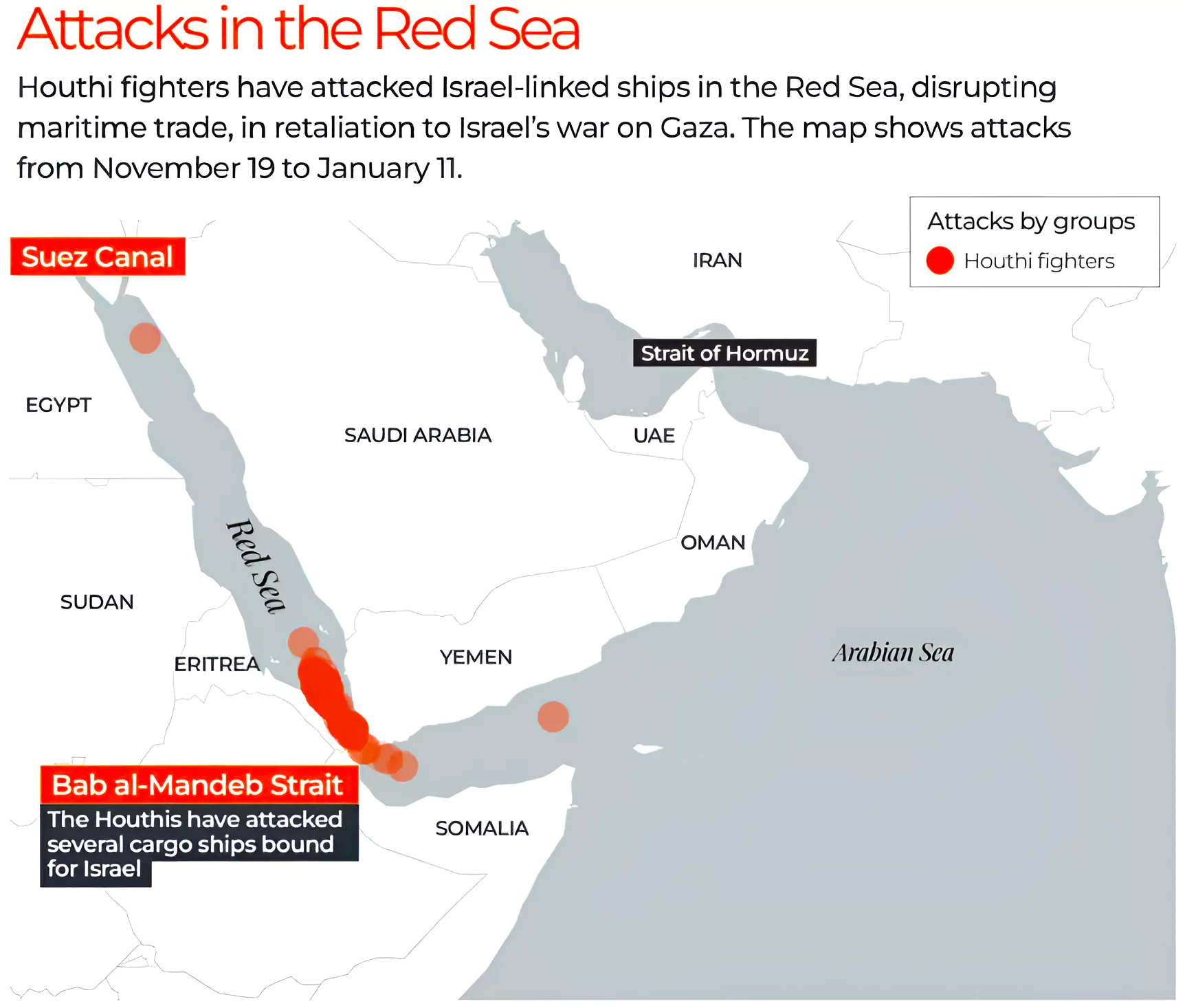![]() 20 Feb 2024
20 Feb 2024
The European Union launched a naval mission to protect the Red Sea shipping lane from Yemen’s Houthi rebels.
 Mandate of the Operation: The mission will refrain from engaging in offensive actions on Yemeni territory for an initial duration of one year.
Mandate of the Operation: The mission will refrain from engaging in offensive actions on Yemeni territory for an initial duration of one year.
Operation Prosperity Guardian
India’s Decision: Countries like India, Italy and France have sent ships to the region on their own initiative, distancing themselves from the U.S. umbrella. |
|---|
Source: Hindu
| Must Read | |
| NCERT Notes For UPSC | UPSC Daily Current Affairs |
| UPSC Blogs | UPSC Daily Editorials |
| Daily Current Affairs Quiz | Daily Main Answer Writing |
| UPSC Mains Previous Year Papers | UPSC Test Series 2024 |
<div class="new-fform">
</div>